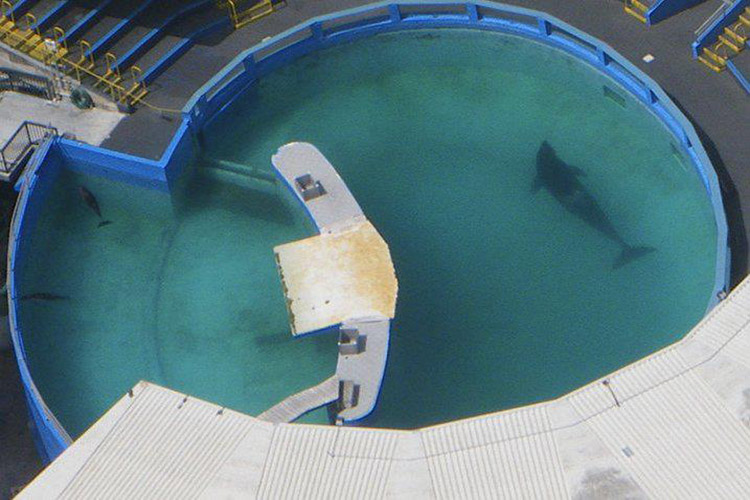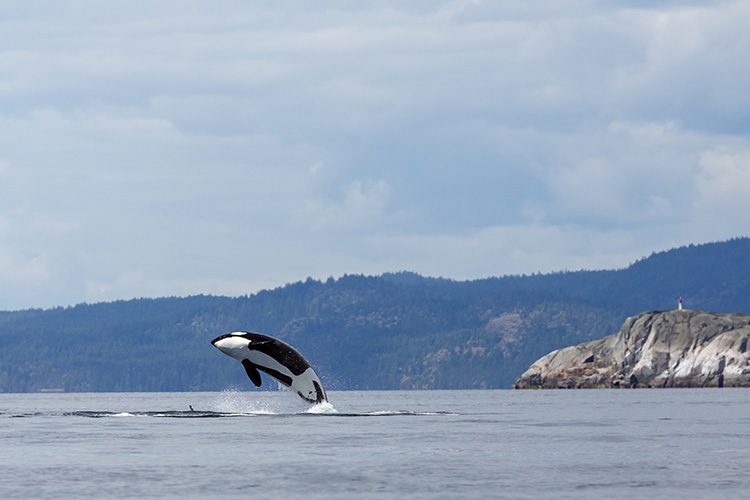
Lolita – an orca who has spent more than 50 years in a Florida aquarium will be released from captivity within the next two years
*** Update: Tokitae/Lolita tragically died in her tank at Miami SeaQuarium on Friday, 18 August 2023. More details ***
A 57-year-old orca named Lolita, who has been held captive for more than 50 years, is to be released by the new owners of Miami Seaquarium. Lolita – also known as Tokitae – has been held captive since 1970, when she was part of a group of 80 orcas rounded up at Penn Cove in Puget Sound, Washington, off the Pacific northwest coast of America.
Six orca calves were separated from their parents and sold to marine parks. Most did not survive a year in captivity, and of these six, Lolita is the only one still alive.
For decades, many have advocated for Lolita’s release. In March 2023, after reaching a ‘binding agreement’ with the nonprofit Friends of Lolita, Miami Seaquarium will return Lolita to an ocean habitat in the Pacific Northwest.
The move will require a permit from the US Department of Agriculture, and the National Oceanic and Atmospheric Administration (NOAA).
‘Lolita will receive the highest quality care as the team works to make relocation possible in the next 18 to 24 months,’ Miami Seaquarium said in a statement.
Miami-Dade County Mayor, Danielle Levine Cava, said the process to release Lolita began with the new ownership of the aquarium to The Dolphin Company. After ownership of the aquarium was transferred, The Dolphin Company then partnered with Friends of Lolita to assist in providing medical care to the orca.
‘Finding a better future for Lolita is one of the reasons that motivated us to acquire the Miami Seaquarium,’ said The Dolphin Company Chief Executive Eduardo Albor in a statement.
Lolita, also known as Tokitae, performed tricks three times a day for almost 45 years in the smallest aquarium pool of its kind in North America. Despite her retirement from performances in March 2022, she continues to be held in an 80-foot-long and 35-foot-wide tank. Orcas can grow up to ten metres (35ft) in length.
In 1980, Lolita’s companion Hugo died, following a brain aneurysm caused by repeated self-inflicted head injuries. Since then, Lolita has been without the company of another orca.
‘I know Lolita wants to get to free waters. I don’t care what anyone says. She’s lived this long to have this opportunity. And my only mission is to help this whale get free,’ said Jim Irsay, the owner of Indianapolis Colts, who is supporting the costs of Lolita’s relocation.
The relocation of Lolita will involve transporting her via plane to an ocean sanctuary in waters between Canada and Washington, where she will be under 24-hour care until she acclimatises to her environment. Initially, Lolita will swim inside a large net, learning how to catch fish with the support of trainers and veterinarians.
Ocean Sun, an orca alleged to be Lolita’s mother, continues to swim freely with other members of what researchers have named the L pod. Advocates say that locations for a sea pen include one in ocean waters where Lolita’s family swim through.

‘There’s the opportunity for her to acoustically connect with her family, without a doubt,’ Charles Vinick said, the executive director of the Whale Sanctuary Project. ‘So, acoustically, yes, and potentially physically over time.’
Lolita is not the first orca to be relocated back into the wild. Keiko, the captive orca made famous by the Free Willy movies, moved from a marine park tank in Mexico, to an Oregon aquarium pool, and finally, in 2002, a sea pen in Iceland. Keiko later swam to Norway and lived in the ocean, before dying of pneumonia.
People for the Ethical Treatment of Animals (PETA) highlights the varying opinions over relocating orcas back into the wild.
‘There is debate about Keiko, and how well he adapted, but I point to his freedom as a victory and proof that he did learn to survive on his own,’ said Jared Goodman, PETA vice president and counsel for animal law. ‘Lolita is the second oldest orca in captivity to Corky at SeaWorld San Diego, but she could have some good years ahead of her. There’s speculation that her mother is still alive. She’s an apex predator. She was never meant to live in a tank.’
Despite the plans to release Lolita, NOAA remains doubtful over her removal from captivity.
A spokesperson said: ’There are a number of risks associated with the release of captive animals to the wild including disease transmission, the ability of released animals to adequately forage, social integration, and behavioural patterns developed in captivity that could affect the behaviour of wild animals. We are concerned about any experimental release and the potential impacts to the endangered Southern Resident killer whale population.’
Miami-Dade Commissioner Raquel Regalado, who has advocated for Lolita and for improvements at Miami Seaquarium, raises concerns with Lolita’s ability to live independently after years in captivity. She said: ‘If she is healthy enough to be transported, the issue is her skill set. She doesn’t know how to catch or hunt. We’re not really sure if she can communicate with other whales because she’s been alone. Now we kind of have to retrain her.’
The cost of the relocation could reach $20 million (£16 million).
Since 1961, 174 orcas have died in captivity, and 30 orca calves have either been miscarried or stillborn. With no natural predators, orca whales are highly sociable and can live up to 80 years.
Related articles
- Orca attacking adult whale shark to eat its liver - 3 August 2023
- ‘The Deepest Breath’ freediving documentary on Netflixnow - 28 July 2023
- Freediver bitten by oceanic whitetip shark - 27 July 2023


